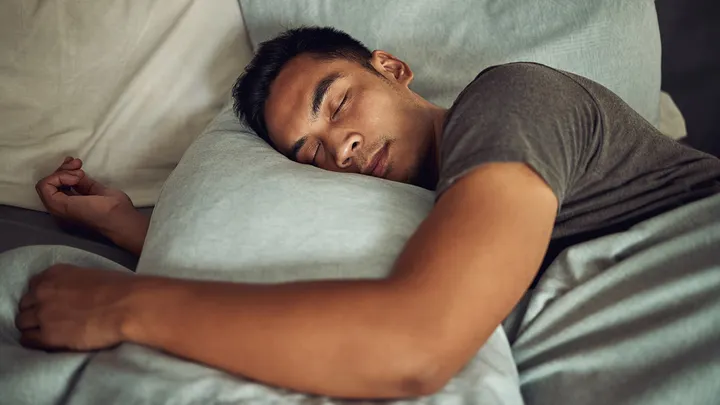By Daniel Edu
Some individuals are claiming that a method utilized by the U.S. military during World War II, known as the “military sleep technique,” could provide a quick solution to insomnia, and sleep experts tend to agree, but with certain caveats.
This technique, which reportedly helps people fall asleep in less than five minutes, was originally described in Lloyd Bud-Winter’s book “Relax and Win: Championship Performance,” published in 1981. Bud-Winter, an American track and field coach, learned about the method from U.S. Navy pilots who could relax and fall asleep within two minutes, even under high-stress conditions.
In a recent viral TikTok video, a user explained the process:
1. Begin by imagining a scanner moving down your entire body from the top.
2. Relax every muscle in your face, including your cheeks and tongue.
3. Unclench your jaw and take slow, deep breaths.
4. Progressively relax the muscles in your shoulders, arms, and hands.
5. Continue to imagine and relax every muscle in your body while deep breathing.
6. Relax your chest and stomach, and then your right and left legs.
7. Shift your focus to relaxing your mind, imagining yourself becoming more and more relaxed in a state of peace and calm.
According to sleep experts, this technique has some legitimacy. It combines muscle relaxation and deep breathing, which can effectively increase relaxation and reduce racing thoughts. The final steps involving visualization and clearing the mind of thoughts can be particularly helpful.
Dr. Shelby Harris, a sleep health director and clinical psychologist, emphasized that while this method can aid in relaxation, there’s no one-size-fits-all solution for better sleep. The military sleep method may work for some but not for everyone. While there’s no scientific evidence to support falling asleep in two minutes, relaxation techniques like this can improve sleep quality and quantity.
For those who may not find success with this method, experts suggest developing a calming bedtime routine, adhering to a regular sleep schedule, and incorporating daytime meditation. Reading a book or engaging in a relaxing activity if you can’t sleep within 20 minutes is also recommended. Ultimately, finding the right sleep routine may require some trial and error.





